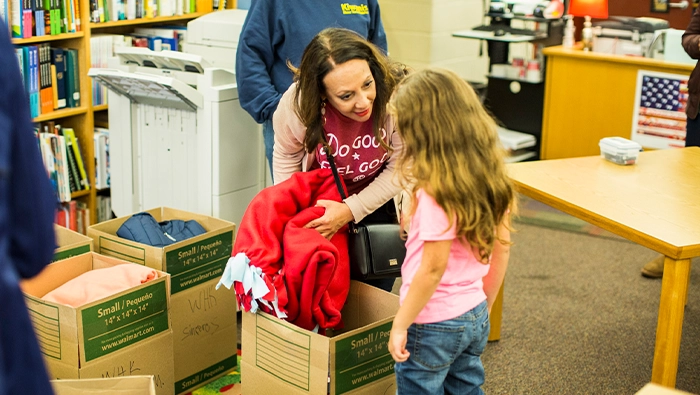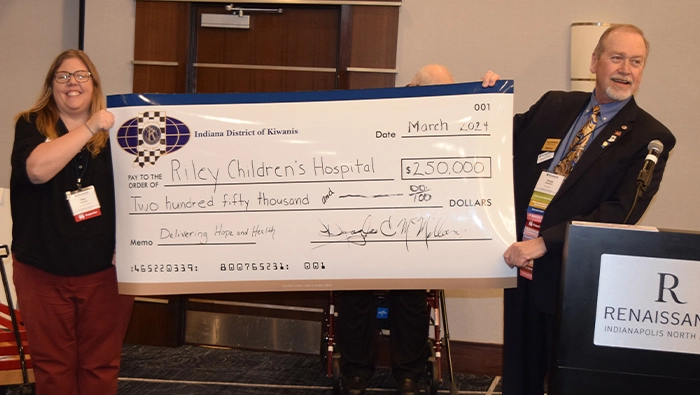
Reasons to join Kiwanis
Here’s why people become members, from personal impact to benefits and support.
By Tony Knoderer
Kiwanis membership is a way to serve kids and improve communities — which makes every Kiwanis club a chance to change children’s lives. But it’s also a place to change your own.
Whether you’re looking for reasons to join or you’re a current member who wants to share Kiwanis with someone else, here are some factors that make being a Kiwanian a rewarding experience:
- Meaningful impact. Kiwanis empowers you to make a tangible difference in your community.
- Personal growth. Membership is a way to enhance your skills and self-confidence — with opportunities for leadership development, public speaking and project management.
- Global connection. The Kiwanis family is a worldwide network of like-minded individuals. Membership fosters friendships, collaborations and cross-cultural experiences.
- A sense of belonging. Through shared service, Kiwanis clubs offer a sense of camaraderie to their members. In fact, the Kiwanis experience often leads to lifelong friendships.
In addition to the rewards of volunteer service, Kiwanis membership also results in specific benefits and opportunities:
- Partnerships and discounts. Thanks to Kiwanis International’s partnerships with various companies and organizations, members get benefits. For example, our member-discount portal makes great deals available on everything from travel to electronics — and more.
- Kiwanis Amplify. This optional online course helps you amplify your skills in ways that resonate even beyond your club. With specific topics and expert speakers both inside and outside the organization, participants work through the material at their own pace and interact with each other in online discussions.
- Blog posts and podcasts. Kiwanis International’s blog page is a handy place to find the latest news, success stories and more — including video podcasts featuring Kiwanis members and staff. Our podcast episodes are also available in audio.
- Support and training. Kiwanis International provides resources, learning opportunities and more. For example, Kiwanis Engage is a member-exclusive online platform that makes it easier for Kiwanians to connect and collaborate. We also offer clubs a free, easy-to-use service to set up a website. And our teams in Member Services and Information Technology are available to answer questions, provide training and other helpful services.
Of course, there’s also the information and support we provide all around this website. Whether you’re a member or thinking about becoming one, kiwanis.org is an excellent guide to Kiwanis International — who we are, what we do and more.


